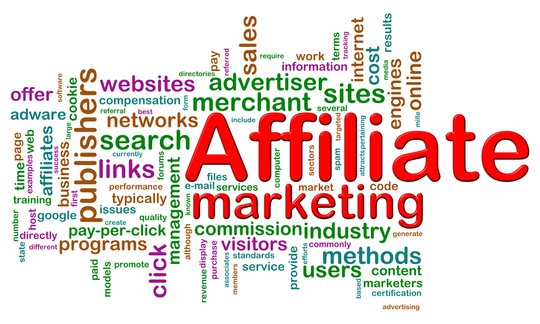How Affiliate Marketing Can Fund Your Advertising Budget
If you mention the term "affiliate marketing" to some brand marketers they either don't know what you're talking about or they think it's some kind of shady method of generating traffic.
Nothing could be further from the truth. Affiliate marketing, simply put, is the use of third parties (affiliates) to help sell your product or promote your brand. Even better, affiliate marketing is a better way for a brand to pay for advertising. What do I mean by this?
Affiliate marketing simply means paying for marketing on a performance basis. As a result, ad expenditures are based purely on whether or not a sale is made. If an affiliate sells a product on behalf of a brand (and, in doing so, promotes the brand), then the brand pays a percent of sale to that affiliate. If the affiliate's efforts do not lead to a sale, the brand does not pay anything.
In order for the affiliate to make money, as I eluded to above, they must promote the brands with whom they have affiliate deals. This is how affiliate marketing, in a way, pays for a brand's advertising. Yes, the brand pays, but only if a sale is made and out of the proceeds of the sale 30 days after it is made. And, while affiliates are attempting to make a sale, the brand is receiving, essentially, free advertising.
If we back up for a moment and consider how most advertising used to be (and, in many ways, still is) purchased, it occurred inside a traditional advertising agency and was done by the media department who contracted with individual publishers on a one to one basis.
Then ad exchanges came along and made it easy for publishers to sell (and buyers to buy) unsold, remnant inventory. Exchanges then moved to programmatic buying of premium inventory from publishers. Centralizing things, agencies then began offering their own programmatic solutions with in-house trading desks to buy the media they had planned to purchase. And that leads to a bit of double dipping, which does not benefit the brands they represent.
Writing in Digiday about this very topic, Jack Marhall wrote, "From a client perspective, the decentralized model appears preferable. Why should they pay for an agency team to plan and buy media from a trading desk, only for the trading desk to charge them again to go out and buy it from exchanges? Why can't their agency teams take care of everything?"
In the words of AffiliateTraction CEO Greg Shepard, "The days of agencies doing media buying are over."
By that he means it's time brands realize that they are paying ad agencies for the "possibility" of their ad dollars achieving results when they could be engaging in pay-for-performance affiliate marketing. Sometimes brands are even paying agencies twice when you factor in the costs for both the planners and the trading desk.
In a way, affiliate marketing is a way to leverage an army of sales people who get paid only if they sell a brand's products. Why would a brand pay anyone for the "possibility" of a sale when they could be paying only for actual sales? This is what affiliate marketing can offer brands and this is why more big brands should seriously explore affiliate marketing.


